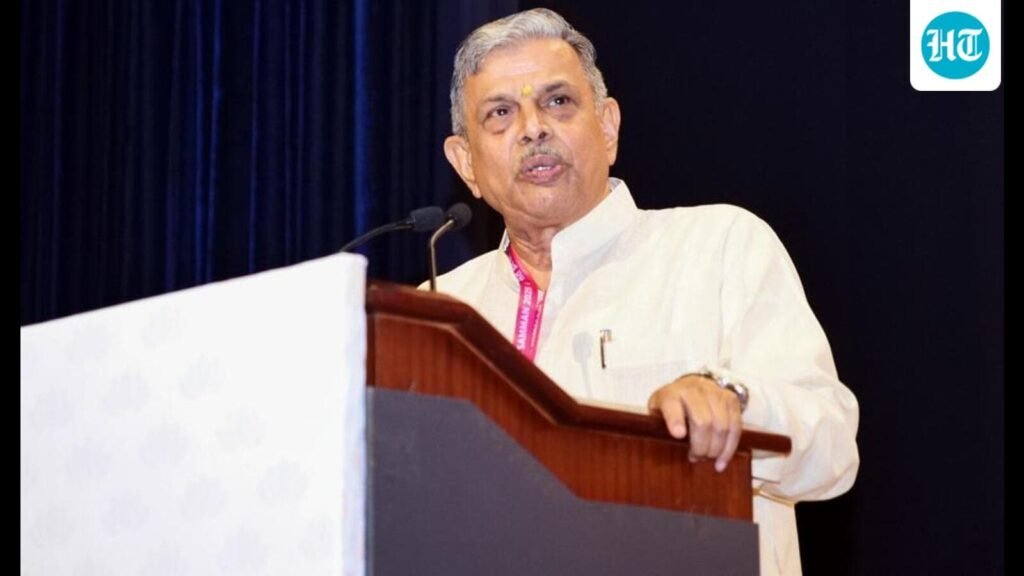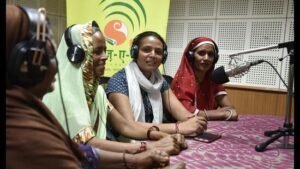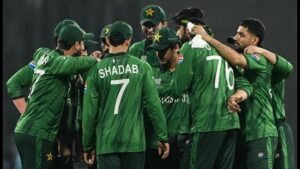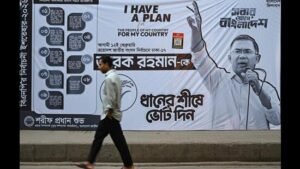
A century ago, in 1925, the Rashtriya Swayamsevak Sangh (RSS) began as a fragile gathering of men in Nagpur. It started its journey at a time when Persian was more in vogue than Sanskrit, when Urdu carried the cadence of letters and poetry, and when Mahatma Gandhi, mistakenly, lent his political energies to the distant Khilafat movement. That modest circle of men, born of uncertain times during which the identity of ancient wisdom was relegated to the background, has, in a hundred years, become one of the most powerful cultural and social forces in the Indian republic.

In his centenary address, RSS general secretary Dattatreya Hosabale spoke of an India where divisions of religion, birthplace, and caste would give way to shared purpose, urging volunteers (volunteers) to “reach all sections of society… to seek cooperation and participation in the mission of national service.” He reminded listeners that through its century-long journey, the Sangh has depended on “society’s constant support,” growing because it aligned with the spirit of the people. From that foundation, he outlined five pillars for transformation— Swadeshi (self-reliance), strong family values, social harmony, ecological consciousness, and civic duty. Each is seen as a thread weaving a unified tapestry. He invoked national religion (duty to the nation) as an eternal moral duty, transcending faith or region, declaring that Indians must dedicate themselves to the nation.
The RSS is today arguably the world’s largest voluntary organization. It has endured bans, survived suspicion, and transformed into a body capable of shaping the national agenda. Whether one admires it or fears it, the Sangh is now a permanent fixture in India’s story. Its rise, despite every challenge, is nothing short of extraordinary.
The RSS is often misunderstood as merely a socio-political force because of its proximity to the BJP. True, the organization has expanded dramatically during the years the BJP has been in power, but it flourished even during the long decades of Congress rule. In truth, it is politically agnostic. When aligned with the party in power, it seeks influence; with the opposition, it seeks engagement. What it ultimately desires is not office but imprint — a presence in every sphere shaping Bharat’s soul. In my view, the RSS is a civilizational movement, waging a patient battle for hearts and minds.
I write this as someone who was born far from Nagpur, both geographically and metaphorically. I grew up in what is now Jharkhand, cradled in a neighborhood of Hindus. My earliest memories are not of boundaries but of festivals, much like what Mr Hosabale described. I splashed colors on Holi, lit lamps on Diwali, and joined the Dussehra pandals. That these were “Hindu festivals” never crossed our youthful minds; for us, they were simply the joyful rhythm of childhood. In return, our Hindu friends came to our homes for seviyan and biryani on Eid, joined our iftarsand offered a warmth that knew no name beyond friendship. We prayed, we celebrated, and we laughed together. Those years remain vivid in my memory.
And yet, whispers reached us. Relatives and elders would caution: Beware of the RSS. They said that behind its rhetoric of harmony lay a demand for the submission of our identity, that we must dissolve into a Hindu majoritarian whole. We were both neighbors and aliens — embraced in daily life yet marked in ideology.
Years later, in 2013, I left behind a successful investment banking career and met Narendra Modi, then the BJP’s prime ministerial candidate. He was direct: If I pledged to serve the nation, he would welcome me. I accepted. That decision was scandalous within my community. Many branded me a traitor for joining the very forces they had long distrusted. The hurt was deep, and for a while, I lived as an outcast. But time, as it does, softened the edges. A decade later, those who once shunned me now listen when I say that misunderstandings need not last forever — that suspicion can give way to trust.
Still, for many in the community, the paradox remains. To live as a Muslim in India is to live with the weight of proof. They tell me, “We are natives and yet foreigners, citizens and yet suspects’. A friend once said, half in jest and half in pain, “How many more times must we prove our love for this nation,
It is in this fragile space that the Sangh’s outreach to Muslims becomes significant. The sarsanghchalak (chief), Mohan Bhagwat, has spoken with a conciliatory tone: “From the day Islam came to India, it has been here and it will remain here.” On another occasion, he added, “If we don’t accept Muslims, it’s not Hindutva… Hindutva is Indianness and inclusivity.” These are welcome words, though some in the community still hear inclusivity on the majority’s terms. Yet many others take heart. Imam Umer Ahmed Ilyasi, after welcoming Bhagwat, said, “Our DNA is the same; only the form of worship is different.” His words reflect a longing for recognition, for suspicion to melt into fraternity. But others, such as Asaduddin Owaisi, dismiss such gestures as “hypocritical.” Between hope and skepticism, our community drifts, never quite at rest.
Yet if we strip away the layers of ideology and fear, we cannot deny our soil. Islam in India was never a foreign intrusion. It seeped through Punjab’s villages via Sufi shrines, entered Bengal’s poetry where Allah was called Iswara and Prabhu,
Crores of people in the Muslim community still carry the surnames of their Hindu ancestors — Bhat, Shah, Cheema, Khokhar, Patel, and many others. To call us outsiders is to deny this truth: We are of this land. We have Hindu ancestry in our DNA, so where is the question of being outsiders? Forget Indian Muslims — even the Muslims of Pakistan and Bangladesh share the same lineage. Indeed, in undivided India, the RSS had branches (chapters) in places like Karachi and Dhaka.
The real question, then, is not whether Muslims belong to India. We always have, and always will. Our countrymen know this well. The question is whether the India envisioned by the Sangh can belong to Muslims without demanding the diminution of their identity. What I see today is a shift, however small.
As the RSS celebrates its centenary, I carry both nostalgia and hope. I look back at a childhood of shared festivals — of seviyan exchanged for sweets, of Holi colors and Eid prayers, of an India in today’s RSS mold — and I know that India, at its best, is already a chorus. The task for RSS, more than the government, now is to make that chorus permanent. Can they do it? I believe they can.
Syed Zafar Islam is a national spokesperson of BJP, former member of parliament, and former managing director, Deutsche Bank, India. The views expressed are personal





